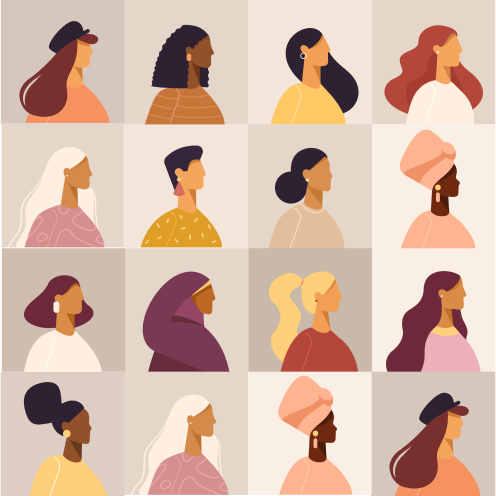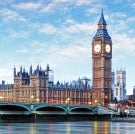Survivors of sexual violence were among the tens of thousands who took to the streets across the UK to march in solidarity with all oppressed women and girls around the world.
Around 5,000 demonstrators walked alongside loved ones and strangers in London on Saturday, shouting chants like “My body, my choice,” and “What do we want? Safety. When do we want it? Now,” while intricate homemade signs reading “And still we rise” and “Women hold up half the sky” were held up.
Organisers estimated up to 21,000 women turned out at 21 marches around the country, coming together in their fight for equality at a pivotal time two days ahead of Donald Trump’s inauguration.
Demi Reilly, 30, told The Independent she attended: “To represent the woman oppressed everywhere. Collectively we need to raise our voices. No woman is free until all women are free… we can’t let s*** slide anymore.”
Anne-Marie Langeveldt, 42, who came from Watford to be there with her mother, pointed to the statistic that around one in three women and girls worldwide are subjected to physical or sexual violence during their lifetime, according to the World Health Organisation (WHO). She described this as “all of society’s problem” and said she was protesting “for the next generation”.
An emphasis was put on the intersectionality of the events, with speakers in the capital highlighting that combatting other forms of discrimination, including transphobia, homophobia, ableism, racism, ageism and classism are all part of the feminist fight. Organisers said they have been left “deeply inspired”, after the demonstrations illustrated “the power of collective action and solidarity”.
Ms Langeveldt, whose relatives are from Zimbabwe, explained that the women in her family have had a traumatic history, so “we’re marching for our women back in Zimbabwe as well”.
She said she was also demonstrating for the women in Afghanistan too who “have no voice whatsoever”, with women and girls there enduring what the UN has called a “gender apartheid” at the hands of the Taliban.
Other protesters also cited the plight of women and girls in Iran, where Amnesty highlighted oppression was further escalated last month when the country introduced a law permitting the imposition of the death penalty for peaceful activism against its discriminatory compulsory veiling laws.
With the ceasefire deal between Israel and Hamas set to come into effect on Sunday, thoughts were also with Palestinian women and girls, who have suffered under heavy bombardment for 15 months.
It was the inauguration of a convicted felon in America on Monday though that prompted the organisation of the march in the days before, with a People’s March also held on Saturday in Washington DC, eight years after nearly half a million demonstrators attended the inaugural Women’s March there.
Many attendees were fearful of what is to come, with the president-elect having boasted about “grabbing [women] by the p***y” in a 2005 Access Hollywood tape, been accused of sexual misconduct by more than two dozen women, and bragged about “killing” Roe v Wade.
And British police have warned violence against women and girls is a “national emergency”, after related crime increased by 37 per cent between 2018 and 2023.
The Independent spoke with a group of 12- and 13-year-olds who all replied “scared” or “it’s scary” when asked how they were feeling about the future, especially with a view to Mr Trump’s second presidential term.
“It’s about our future,” said Bea, Nerys, Annie and Nell, who were all attending the march in London with their mothers. “We’ll be the generation affected, we’ll be the ones growing up with Trump’s laws.”
The girls said they were also compelled to come out and protest after finding out about the horror endured in France by Gisele Pelicot, 72, who was drugged by her ex-husband, Dominique Pelicot, and then raped by him and dozens of other men, between 2011 and 2020.
An even younger attendee was one-year-old Eliza, who was there with her mother Hollie Deaves, 24, and grandmother Susan.
Ms Deaves said she and her mother both became emotional as they marched from Waterloo Station across Westminster Bridge, past Big Ben and the House of Parliament, before congregating at Old Palace Yard with the rest of the crowds.
Among the reasons she was demonstrating, the 24-year-old said: “To show solidarity, to show we’re not alone.”
Gesturing to her toddler Eliza, who was dressed in a bright yellow high-visibility vest reading “Please don’t make me a commodity”, Ms Deaves added: “And for her future too.”
Organisers Ashley Donaldson, Carolyn Storer and Hollie Jordan said: “This is just the beginning for the UK Women’s March. We remain steadfast in our commitment to campaigning and marching until all women worldwide are free, have equitable access to healthcare, and no longer live in fear of violence and oppression.”
Source: independent.co.uk



